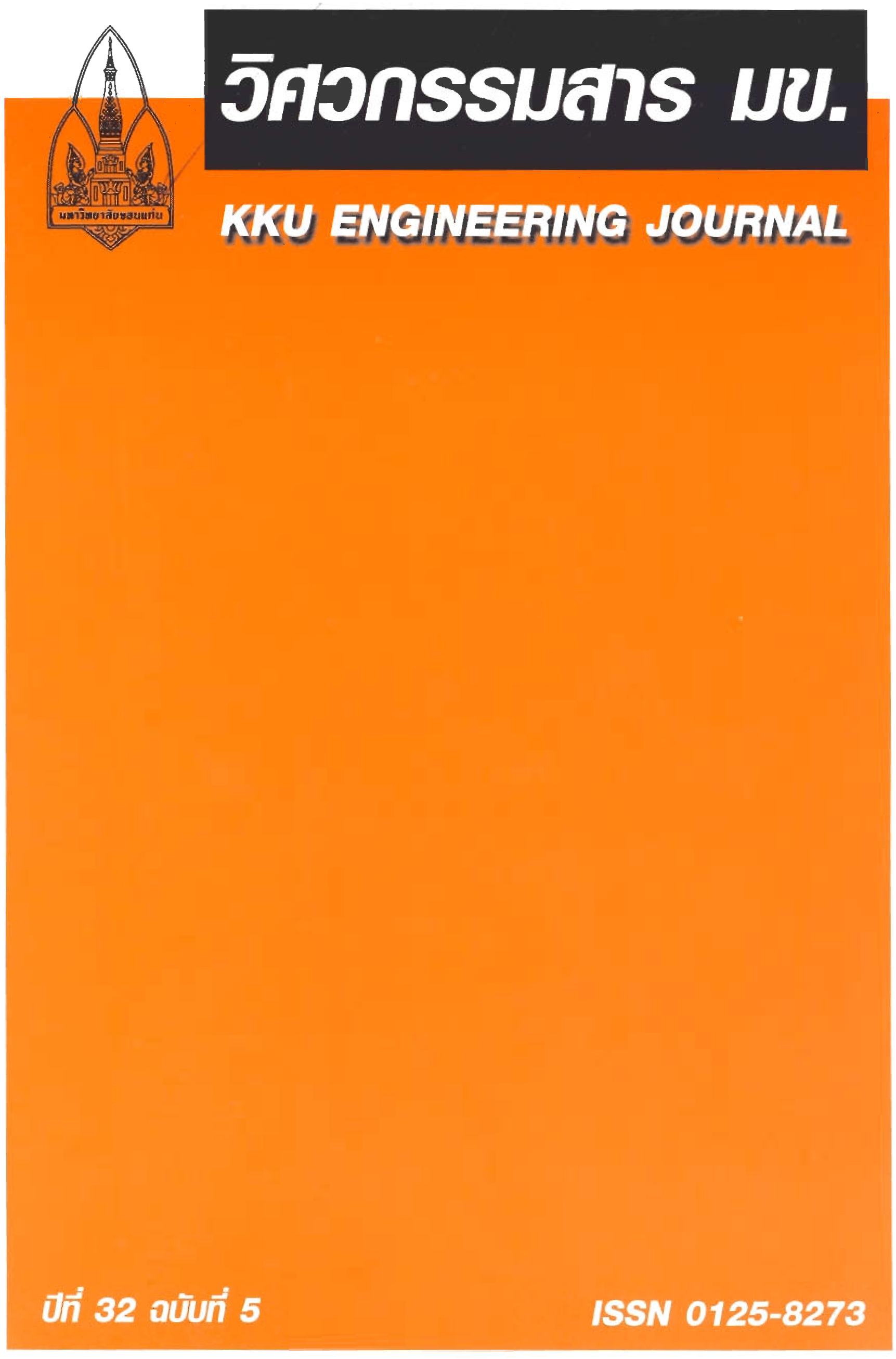Study on the Effects of Parameters in the Deep Drawing Process of Aluminum Sheet Reflector Using Finite Element Method
Main Article Content
Abstract
The objective of this research project is to determine the optimum parameters in the deep drawing process of aluminum sheet reflector using the Finite Element (FE) Method. A commercial FE package called OPTRIS was applied as a simulation tool. Aluminum sheet type A1100-O used has a thickness of 1mm. With the present investigation, the operation had been divided into two parts. First. The accuracy of the software was tested. By comparison of the simulation results with the real experiments, while the die sets had not been adjusted, on terms of drawing force and product thickness. Good agreement was found. Thus, it could be concluded that such FE model could be employed to optimize the process parameters. Second, determination of suitable process parameters to improve the die sets was made by studying the effects of the die radius on the damage and the thickness of products. Effects of blank holder force on thickness and wrinkle of product edges were investigated, as weil. From FE simulation results, it could be found that when the die radius increased. The reduction of drawing force occurred but the thickness at bottom of cup increased. In addition. The optimum blank holder force was able to introduce good material flow rate in the process. As a result, thickness at the bottom of cup increased and wrinkle was not found in all eases. Experimental results obtained from improved die set based on simulation predictions showed that using the optimum die radius and blank holder force can produce sound products without defects.
Article Details
This work is licensed under a Creative Commons Attribution-NonCommercial-NoDerivatives 4.0 International License.



